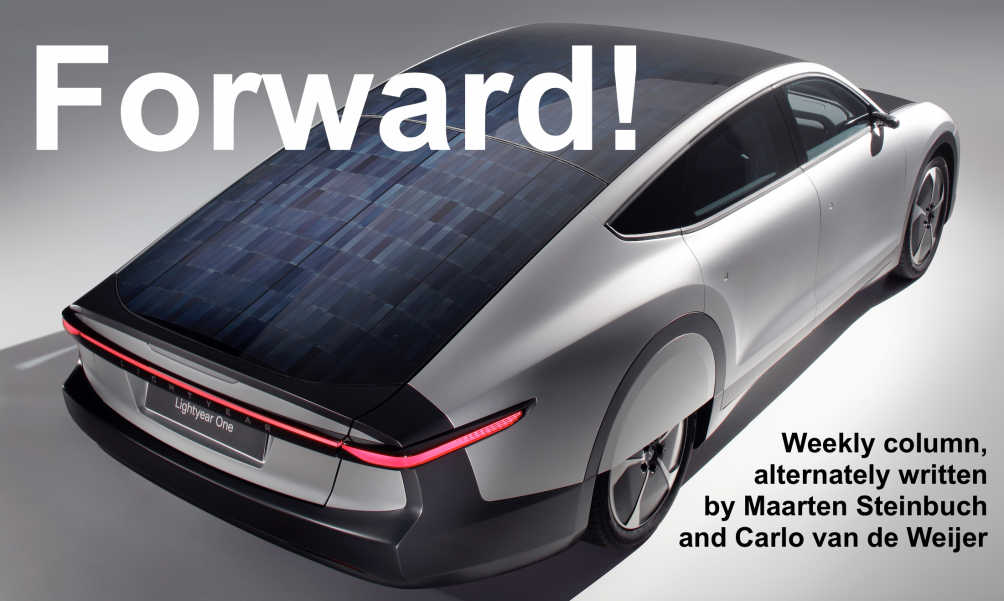
Electric driving is gaining popularity. Last year was another top year for sales of new electric cars in the Netherlands, despite the sharp drop in total car sales.
In the corona year 2020, 356,000 new cars were registered in the Netherlands, compared to 445,000 in 2019. But of those 356,000, no less than 73,000 were electric. This means that the share of electric vehicles rose from 12.7% in 2019 to 20% in 2020. The rise of the electric car is, therefore, proceeding remarkably fast, because in 2018 the share was only 4.9%, and in 2017 a lousy 1.7%. The sales of used electric cars also increased, to 16,000.

The growth of electric cars is at the expense of gasoline and especially diesel. In 2020, only 14,000 new diesel cars were registered, accounting for 3.8% of the total. The days of this fuel seem to be numbered. Hydrogen for passenger cars is not a realistic option, because of its poor economic performance, as we discussed earlier in this column. The market also seems to see this: Hyundai only sold 140 hydrogen cars in the Netherlands in the past year.
The change in the taxation addition (from 8% to 12% in 2021) has certainly had a positive effect on the December registrations of electric cars in particular. No less than 60% of new cars in December were electric. But the supply is also growing rapidly (and moreover, just admit it: who does not doubt the value of their petrol car in five years’ time?).
“I predict that from 2024, more than half of sales will be electric”
Maarten Steinbuch
In 2020, the absolute winner was the electric Kia Niro, with almost 12,000 registrations, followed by the new Volkswagen ID.3, with almost 11,000, and the Hyundai Kona, with over 10,000 registrations. The top three are closely followed by the Volvo XC40, the Tesla Model 3, and the Opel Corsa-e.
In addition to the business driver, more and more private individuals are benefiting from improved range (more than three hundred kilometers), and a drop in price. In terms of the purchase price, the various models are already close to their petrol brothers or sisters, although this is still partly due to the lower purchase tax. The trend is reinforced by the fact that most manufacturers are increasing their production, which leads to cost reductions. The price of a battery drops by about 15% per year, already for years now, and is now close to €100/kWh. This means that a battery pack of at least 60 kWh is feasible at an affordable price.
What can we expect in the coming years? Well, the internal combustion engine has had its day, the hybrid is too complex and too expensive and hydrogen is not useful for passenger transport. That is why the future of automobility is completely battery-electric. Virtually all car manufacturers are fully committed to this.
“The future of automobility is completely battery-electric”
Maarten Steinbuch
Because of the expansion of production, I expect a further drop in prices with a better range. Because driving and maintenance are also significantly cheaper, I predict an increase in Dutch sales to around 100,000 in the coming year, or almost 25% of the total in 2021. Because the development is going faster than I had previously expected, I think that from 2024 more than half of the sales will be fully electric.
Maarten Steinbuch and Carlo van de Weijer are alternately writing this weekly column, originally published (in Dutch) in FD. Did you like it? There’s more to enjoy: a new book with a selection of these columns has just been published by 24U and distributed by Lecturis.







